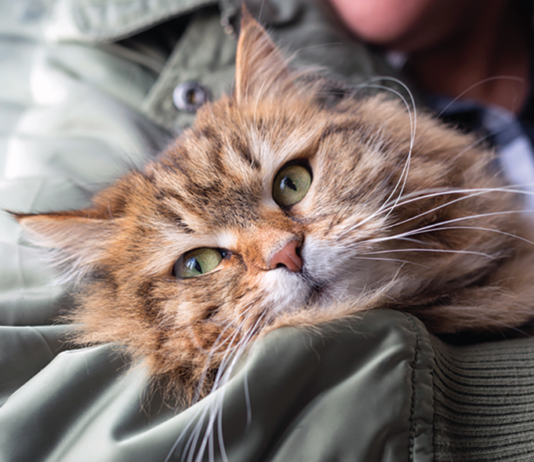Beyond the Guidelines and Checklists
Guidelines from the American Veterinary Medical Association understandably take an objective approach to euthanasia: When animals are plagued by disease that produces insurmountable suffering, it can be argued that continuing to live is worse for the animal than death … The humane disposition is to act for the sake of the animal or its interests, because … the animal will be relieved of an unbearable burden.
Where To Find Help
These pet loss support hotlines are among those available:
Veterinary Hospice: An Option?
For many years, Katherine Goldberg, DVM, worked in veterinary critical and intensive care units. As she found herself becoming increasingly interested in the stories behind the emergencies, she was moved to make a difference for terminally ill pets. In 2010, she founded Whole Animal Veterinary Hospice Services, a practice whose mission is to provide “compassionate care in the comfort of your home.” She now spends most of her time doing just that. We spoke with Dr. Goldberg at a recent presentation in Ithaca, NY, where her practice is based. What exactly is veterinary hospice? The word “hospice” — which has the same root as “hospitality” — originally meant a place of shelter for weary travelers. In 1969, Elizabeth Kubler-Ross’s groundbreaking book On Death and Dying helped to jumpstart the human hospice movement, and the term “hospice” began to be used to describe specialized care for dying people.
How to Help Your Grieving Cat
Ever since one of your beloved cats died several weeks ago, youve been feeling pretty down. People who have been through the same experience tell you this is normal after such a loss. But then you notice that your other cat is eating a lot less, doesnt play like he used to and wanders around the house, yowling, as if he was looking for his lost companion. Do cats grieve like we do? And if so, are there things we can do to help them? Animals and Emotions. Its only within the last ten years or so that scientists have begun to recognize that animals lead rich emotional lives. There is evidence that cats and other animals experience emotional responses to significant changes in their environment - and this includes going through the grieving process after the loss of feline or human companions. "What is important for people to realize is that the same brain neurochemistry that allows humans to feel is the same neurochemistry that many animals have - including cats. Cats can mourn," says Katherine Houpt, VMD, PhD, the James Law Professor of Behavior Medicine at Cornell Universitys College of Veterinary Medicine.
Euthanasia: What to Expect and What Questions to Ask First
How can you possibly go on living without your cat - the beloved best friend with whom youve shared your life for the past 10 or 15 years? That is one of the challenging and possibly unanswerable questions that loving and conscientious cat owners must ponder when their veterinarian suggests that they might want to consider euthanasia. The Good Death. The term euthanasia is derived from two Greek words - eu, which means good, and thanatos, which means death. In a report published in 2001, the American Veterinary Medical Association (AVMA) defined this "good death" as follows: "Euthanasia is the act of inducing humane death in an animal. It is our responsibility as veterinarians and human beings to ensure that if an animals life is to be taken, it is done with the highest degree of respect, and with an emphasis on making the death as painless and distress-free as possible."
Short Takes: 11/07
But of course, cats cant, which is what makes pain management so difficult for cat owners and veterinarians. Fortunately, some help is offered in "Pain Management Guidelines for Dogs and Cats" (Journal of the American Animal Hospital Association, Vol. 45, September/October 2007) from the hospital association and the American Association of Feline Practitioners. The new guidelines highlight the critical role of us cat owners, who can tell veterinarians that we need help "to recognize the subtle signs of pain" and to understand that "methods for the alleviation of pain are available, effective and generally safe. As the guidelines go on to say, "Even subtle changes in behavior are reasons to contact the veterinary clinic because these are the first signs of illness and pain."
Coping With Loss of a Pet is Just a Phone Call Away
For many animal lovers, losing a beloved pet is one of the most heartbreaking experiences they will ever face. Feelings of denial, loneliness, depression and anger are common occurrences. Friends and family may try to be supportive, but after a while they cease to understand why the bereaved pet owner doesnt just get over it and move on.
Euthanasia: A Kind Choice
Making the decision to humanely end the life of your terminally ill or disabled cat can be very difficult. Here's some help.
Home Hospice Care of Terminally Ill Cats
Providing a Safe Passage for Your Feline Companion
How Will I Know When Its Time?
Saying goodbye to a beloved cat isnt easy. Finding support and empathy can help.














